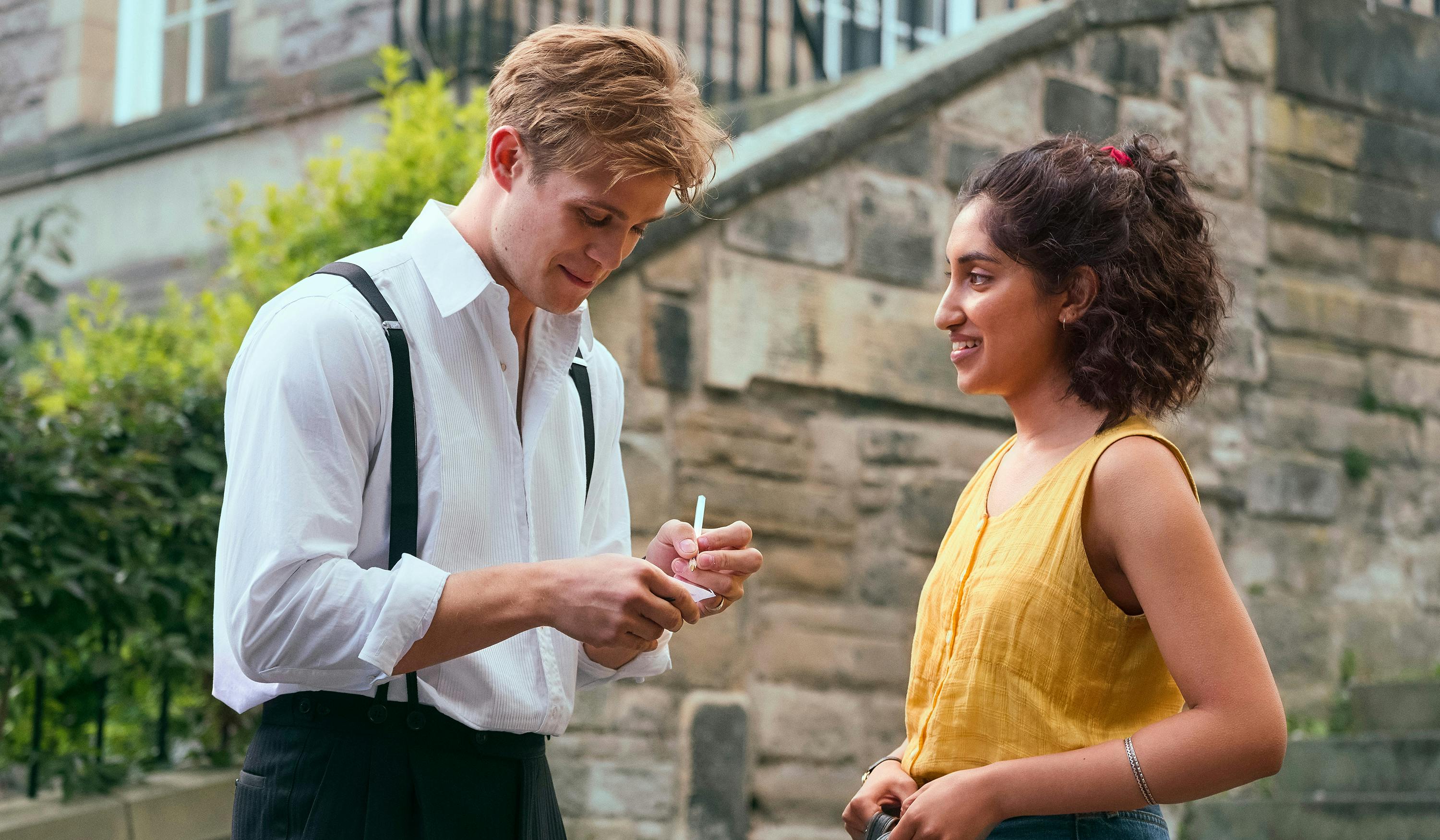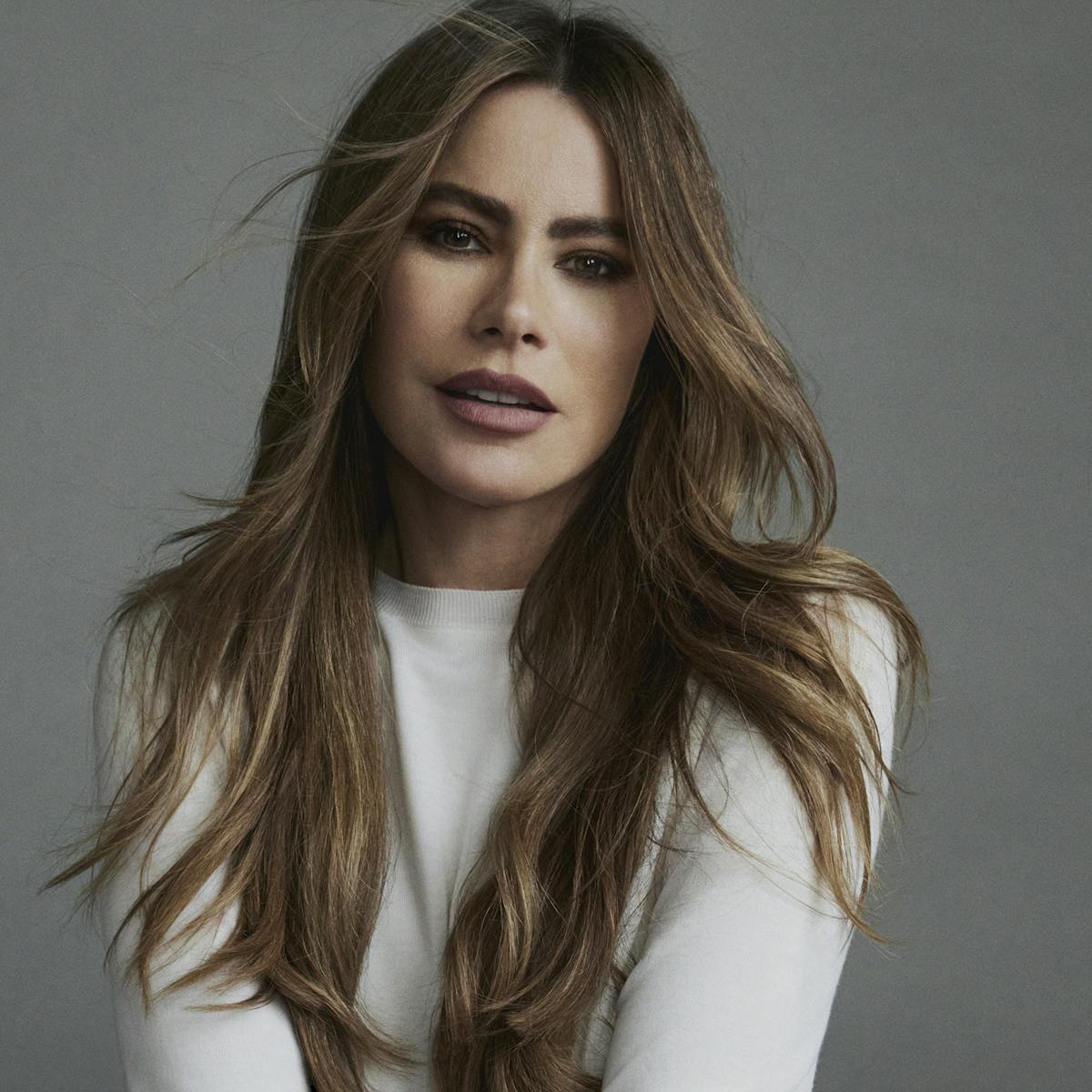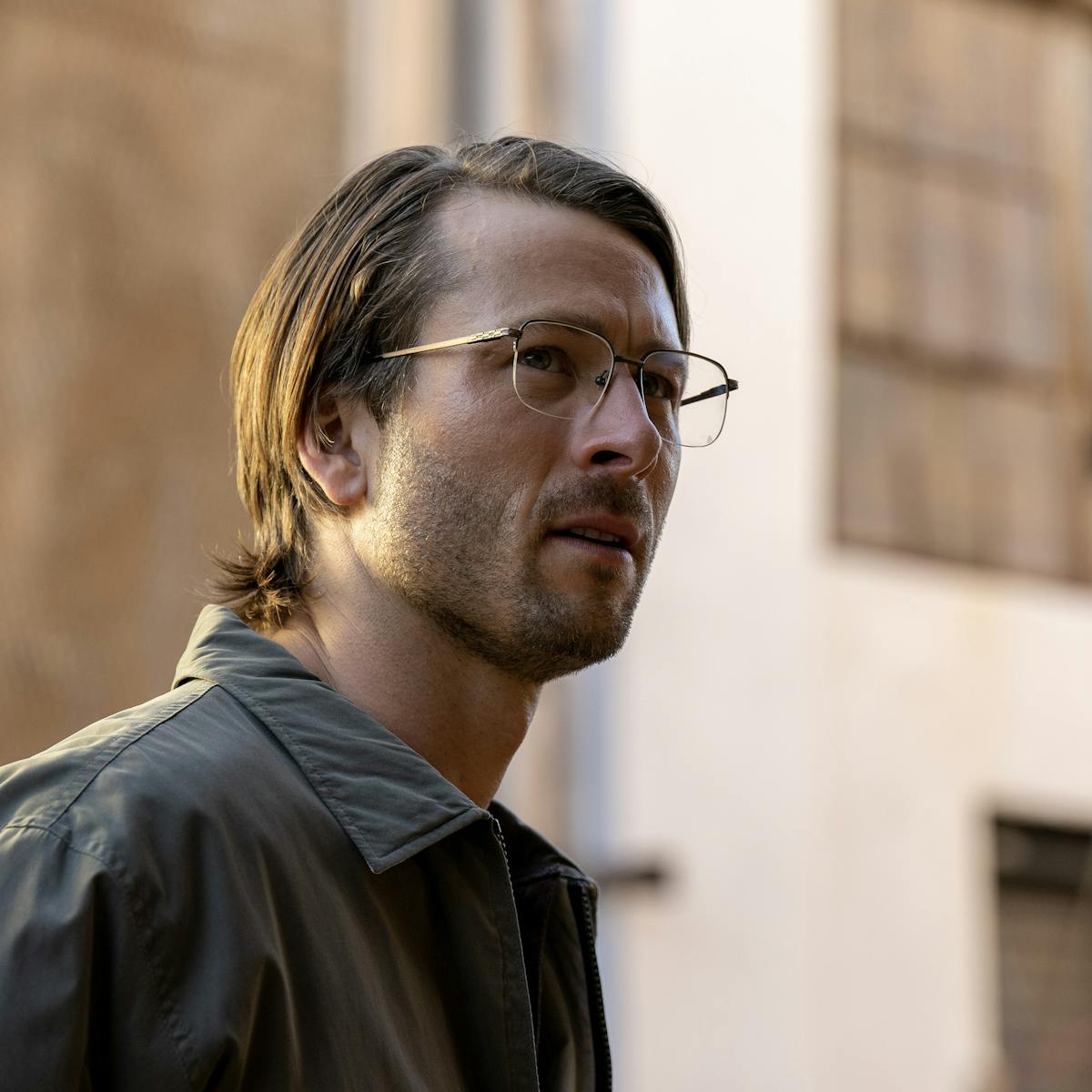Author David Nicholls and music supervisor Matt Biffa on the series adaptation.
When one imagines an author sitting down to write, it’s easy to conjure the scene: a figure at a desk, dreaming up characters in silence. However, David Nicholls, author of the best-selling 2009 novel One Day, incorporated quite a bit more sonic inspiration into his own process. “Music was part of the writing [process] in establishing a mood for certain chapters and in summing up certain memories,” he says now, 15 years after his novel’s publishing. “It’s much more useful than looking at newspaper headlines — to put on a song and remember where you were when you heard Massive Attack or ‘Back to Life’ for the first time. For me, it’s a tool.”
The novel, now adapted into an eponymous series by showrunner Nicole Taylor and starring Ambika Mod (This Is Going to Hurt) and Leo Woodall (The White Lotus) as protagonists Emma and Dexter, follows the two friends over the span of 20 years as they come and go from each other’s lives, every chapter and episode checking in on the same day of each year — July 15.
Nicholls, who earned an Emmy nomination for his work on the series Patrick Melrose and who serves as executive producer on One Day, extended the musicality of his writing process into the narrative of the couple’s intertwining lives. “In the novel, there’s a bit where Dexter is going through boxes and he finds an old compilation tape Emma did for him back in 1989. That prop, for me as a novelist, was fun to work out. Over the years that morphed into an 80-song playlist,” says Nicholls. “Beyond that, I thought it would be useful to know what Emma and Dex were listening to. I have all of their record collections, which was something that I dipped into when we were compiling the soundtrack as well.”
The author’s curated playlists were expanded upon for the series soundtrack, with the help of music supervisor Matt Biffa, who knew the source material well. “I loved the book, first and foremost,” recalls Biffa. “There are certain things in it that are uncomfortably close to home. In the 90s, I used to go to places like Quaglino’s and the Atlantic Bar, and there have always been certain things with Dex that I felt were uncomfortably close. Beyond that, I’m just a sucker for a great love story.” Biffa, a celebrated music supervisor who came of age in the same London music scene that Dexter and Emma inhabit, took little convincing to join the project and parlayed his life experience and expertise into crafting an aural world that takes us back to 80s and 90s London.
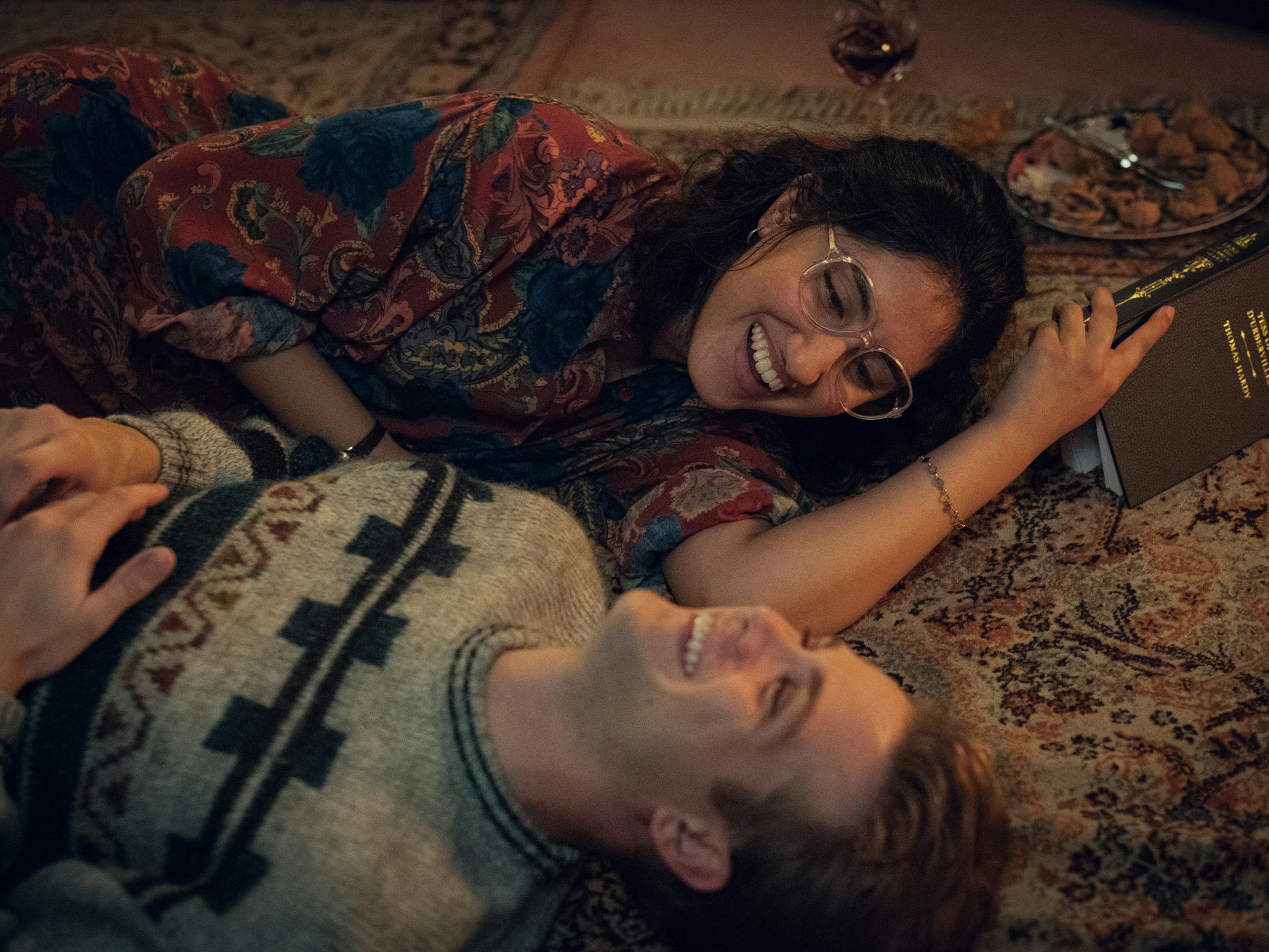
Dexter Mayhew (Leo Woodall) and Emma Morley (Ambika Mod)
“What I did at first was put a playlist together based on stuff that I felt may or may not work,” says Biffa, who found significant crossover between his and Nicholls’s playlists. The music supervisor also came to the table with certain artists and songs he felt had to be incorporated. “I was absolutely adamant that we should use the Pixies, that we should use Blur, that we should use Radiohead. I really wanted to use Oasis, but I think that was a step too far,” Biffa admits.
Similarly, Nicholls, who had spent so many years with the characters, had songs he felt were vital in telling their story. “If the book had a theme tune, it would be ‘Protection’ by Massive Attack and Tracey Thorn, which is a song that I just revere,” the writer says. “That line, ‘I stand in front of you, [I’ll] take the force of the blow,’ even just saying it makes me very emotional. That’s very much their friendship, protecting each other, looking after each other, taking the force of the blow. I think that’s a beautiful sentiment.”
The duo worked together to curate the sound of a great love story, using music authentic to the time and place but also to the characters Nicholls so lovingly created. Here they share some of their favorite music moments from the series, giving insight into their selections, and revealing a dedication and passion for the work that mirrors what Emma and Dexter share.
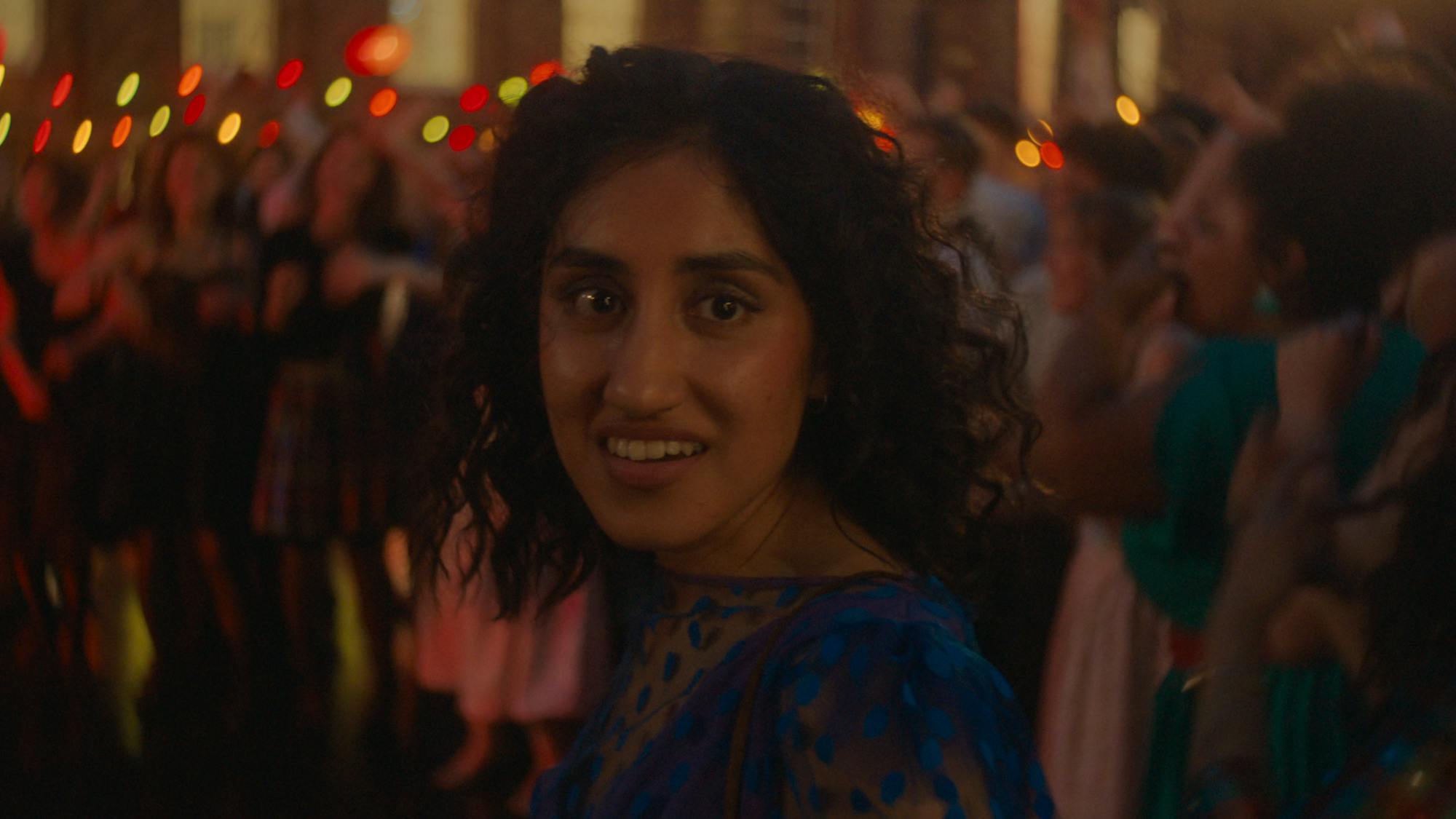
Emma Morley (Ambika Mod)
“Your Love”
by Frankie Knuckles (Episode 1)
I think one of the most important songs, and the one that there was a lot of back and forth on, was the opening of the whole show. We’re in 1988, and probably the obvious way to do that is to go with a really big song from that year. So you’d go with, golly, I think it might’ve been “Ride on Time” by Black Box or something like that, and that would’ve been great. I tried to go a little bit deeper, and then I sent the playlist to Molly Manners, our director. She rang me up and said, “Oh my God.” She’s a really big believer in coincidences, and she’d [heard] “Your Love” by Frankie Knuckles in her hairdresser’s or something like that. She said, “Right, okay, we’ve got to use that now.” I was thrilled with that because when you hear it, [at first] you think you’re going to hear “You Got the Love” by Candi Staton and the Grid, and then it’s actually the O.G. I felt that that was a really good place to start. —Matt Biffa
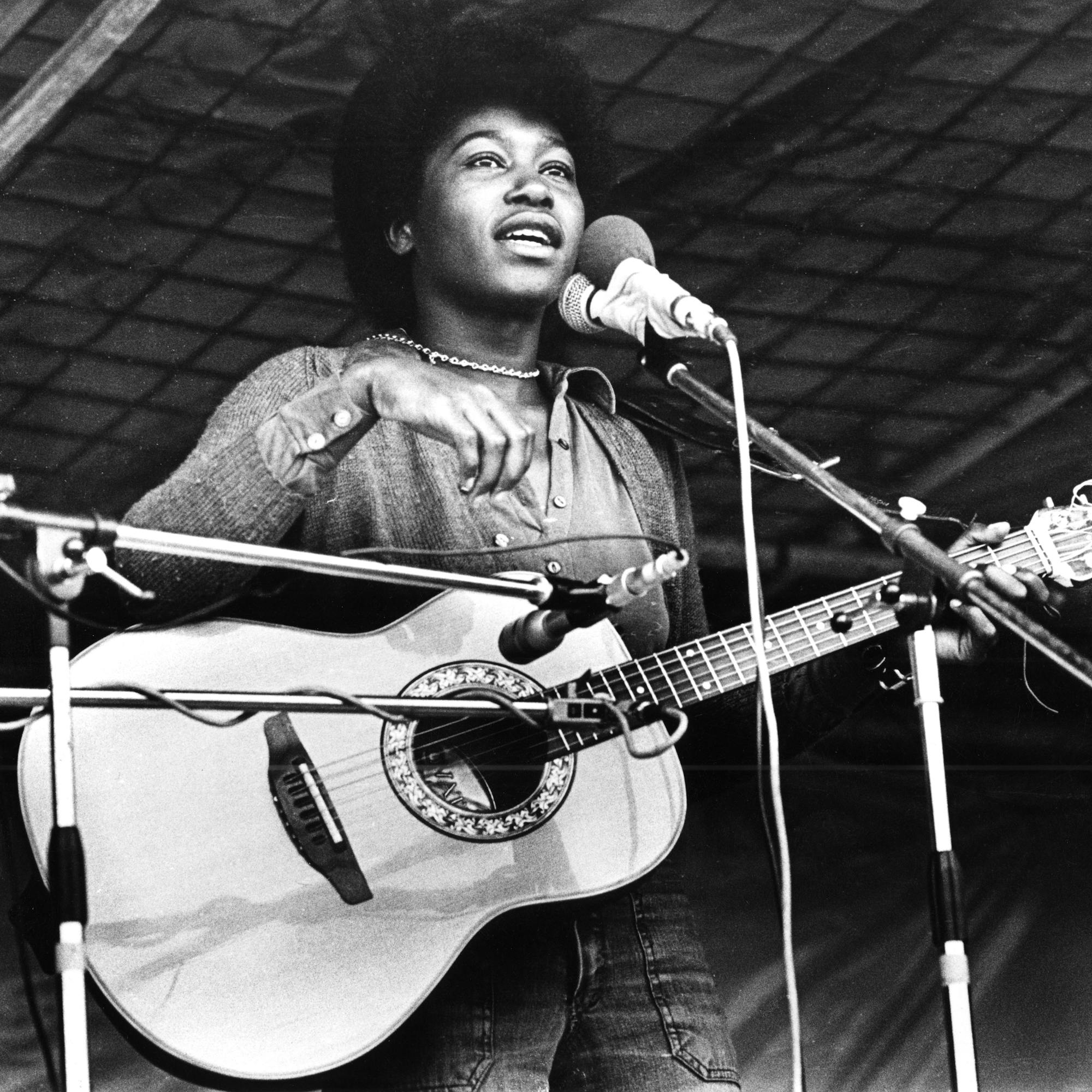
Joan Armatrading
Photo by vCaem/Hanekroot/Redferns
“Love and Affection”
by Joan Armatrading (Episode 1)
“Love And Affection” by Joan Armatrading is a song I remember hearing on the radio as a 10-year-old boy and thinking it was so unusual and strange and brilliant. It’s such a mysterious song about someone refusing to accept or acknowledge how they feel about someone, which is what the whole show is about. So it’s a great song to play, but when you put it in the context of the scene, it becomes really funny because it’s not what Dexter wants. He doesn’t want a singer-songwriter talking about love and affection. And he does a terrific look of, Oh my God, this is all happening a bit too quickly. I’m not sure, maybe this is a mistake. We tried six or seven songs there, but “Love and Affection” was the one that best revealed the character. Emma is quite a romantic soul and romantically cautious, and Dexter is perhaps a little more frivolous and wary of attachment. —David Nicholls
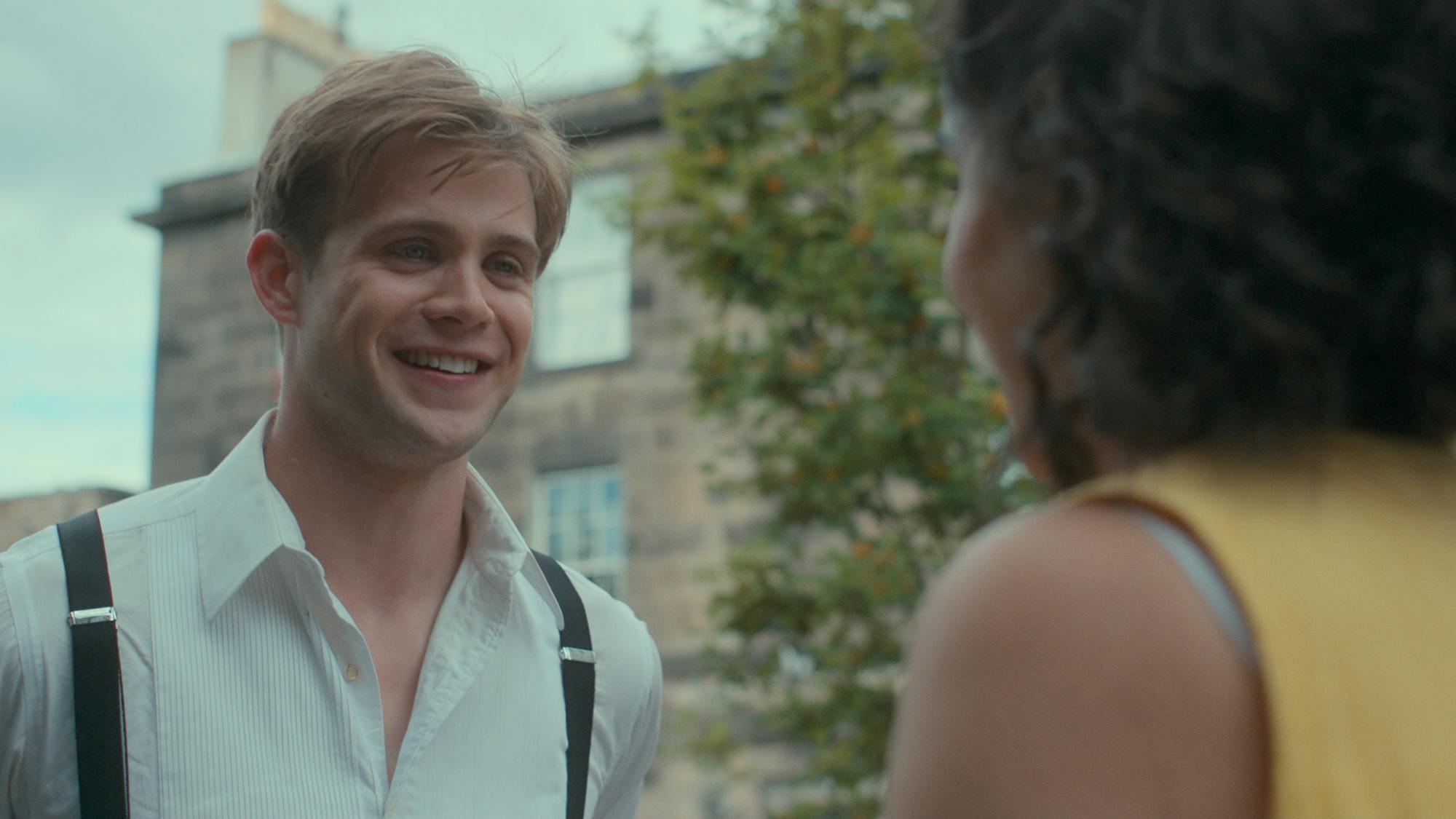
Dexter Mayhew (Leo Woodall) and Emma Morley (Ambika Mod)
“This Is the Day”
by The The (Episode 1)
There was a lot of talk about this because it’s from 1983, and I think David was quite keen on having something that was very pointedly 1989. We tried loads and loads of stuff, and the thing is, nothing was quite as good as “This Is The Day” in terms of setting out how they ultimately are going to feel about each other and how important they’re going to be to each other over the next 20 years. We were trying things like, “Get Up” by R.E.M. or the Smiths or the Pixies. It was then [we realized] it would be lovely to have a 1989 song, but only if it’s better than “This Is The Day.” —Matt Biffa
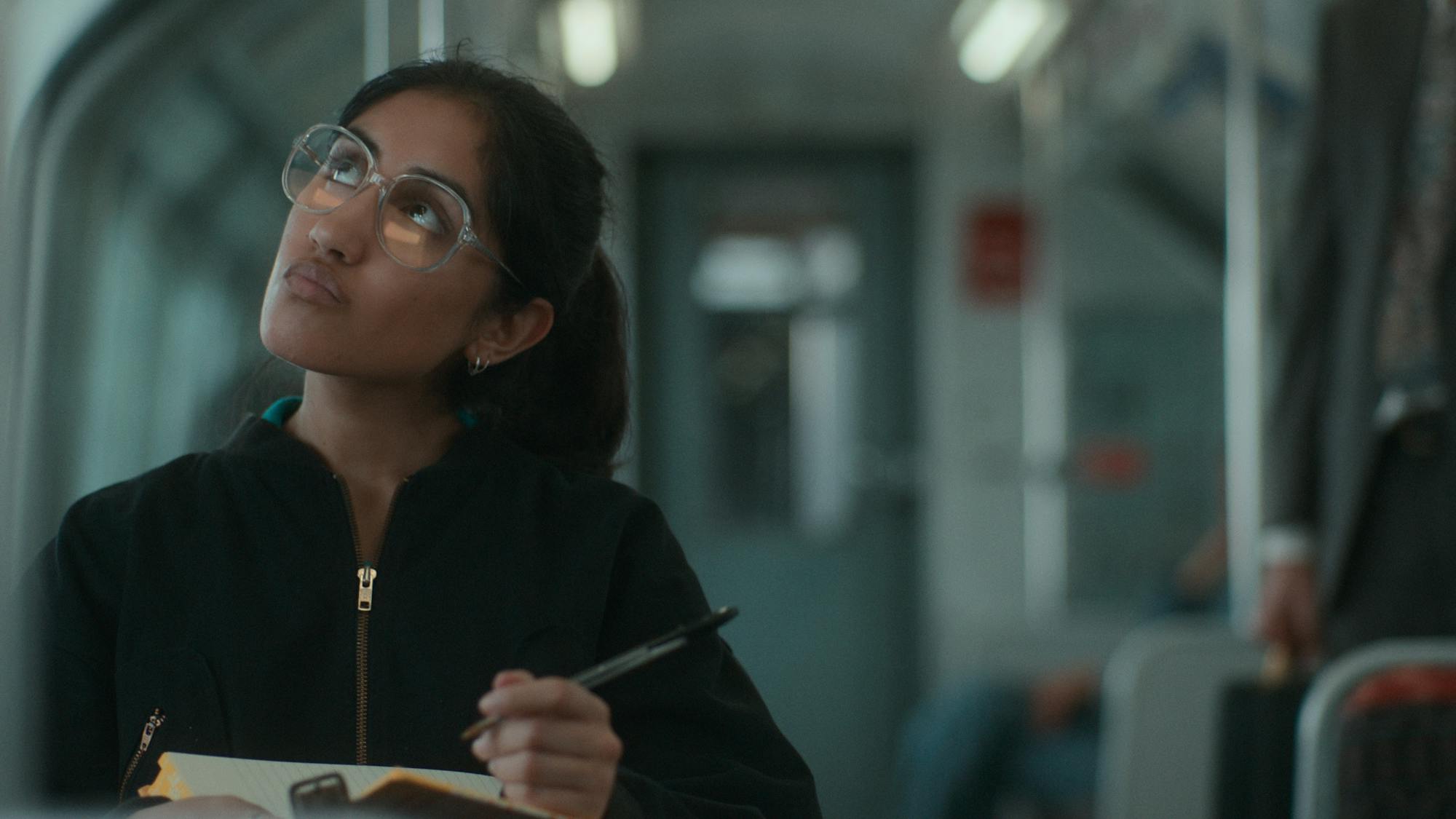
Emma Morley (Ambika Mod)
“Back to Life (However Do You Want Me)”
by Soul II Soul, Caron Wheeler (Episode 3)
One track for me which is all about time and place is “Back To Life” by Soul II Soul, which was so fresh and was doing something so innovative in bringing a particular kind of dance music into the mainstream. It was such a summer sound. It was everywhere, absolutely everywhere in ’89. I hear that opening acapella vocal and I’m just slammed back into that era. So that, for me, is a pure, distilled nostalgia, a great piece of production, a great vocal, and great song. —David Nicholls

Emma Morley (Ambika Mod) and Dexter Mayhew (Leo Woodall)
“I Am the Black Gold of the Sun”
by Rotary Connection (Episode 4)
One of my favorite needle drops, and I’m only sad we couldn’t play the whole thing, is “I Am The Black Gold Of The Sun.” We wanted all the music in episode four, certainly at the beginning, to have a summer holiday feel. And this is 1991. It’s the beginning of Ibiza and house music and the Café del Mar Balearic style. There’s a particular early 90s laid-back, jazz-inflected, dance music sound that’s summed up by “I Am the Black Gold of the Sun.” Lots of Spanish guitar and house piano and female vocals. And even though it’s a song from the 70s, it’s very, very early 90s. So that’s a favorite. —David Nicholls
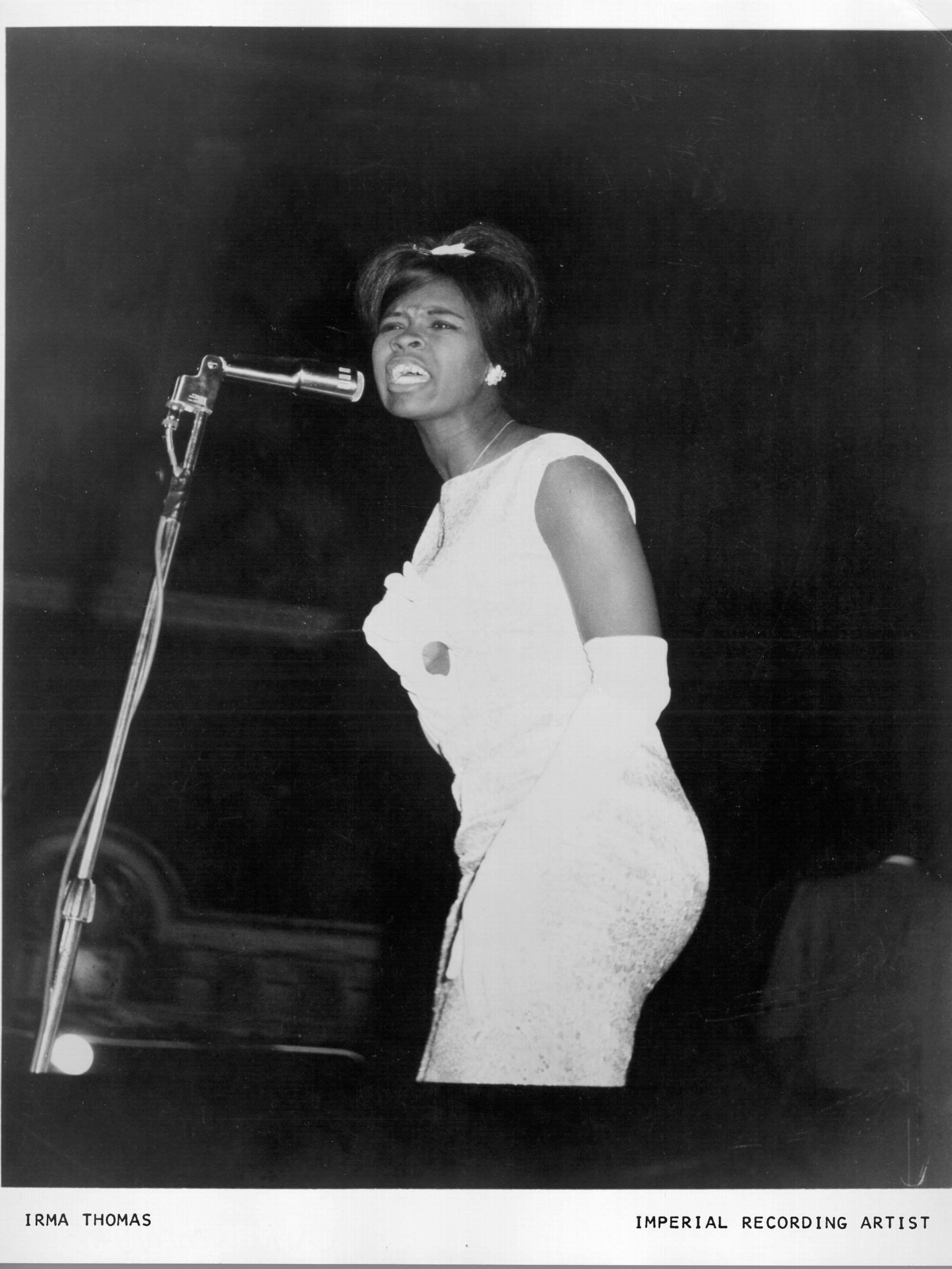
Irma Thomas
Photo by Michael Ochs Archives/Getty Images
“Anyone Who Knows What Love Is”
by Irma Thomas (Episode 4)
That was the hardest cue in the whole series. We tried so many songs there, and a lot of what we tried was way too low-key and sad and sort of self-pitying. What’s great about Irma Thomas is the vocal is so strong and there’s an element of defiance and strength in it that actually makes Emma not the victim of Dexter’s fickleness, but actually kind of the more powerful of the two characters at that point. Dexter is just at the beginning of a period where he won’t necessarily be the nicest person to be around, and Emma is making a decision to move away from him rather than just being all round-shouldered and low status. I love the song for the way it lifts Emma at that stage. —David Nicholls
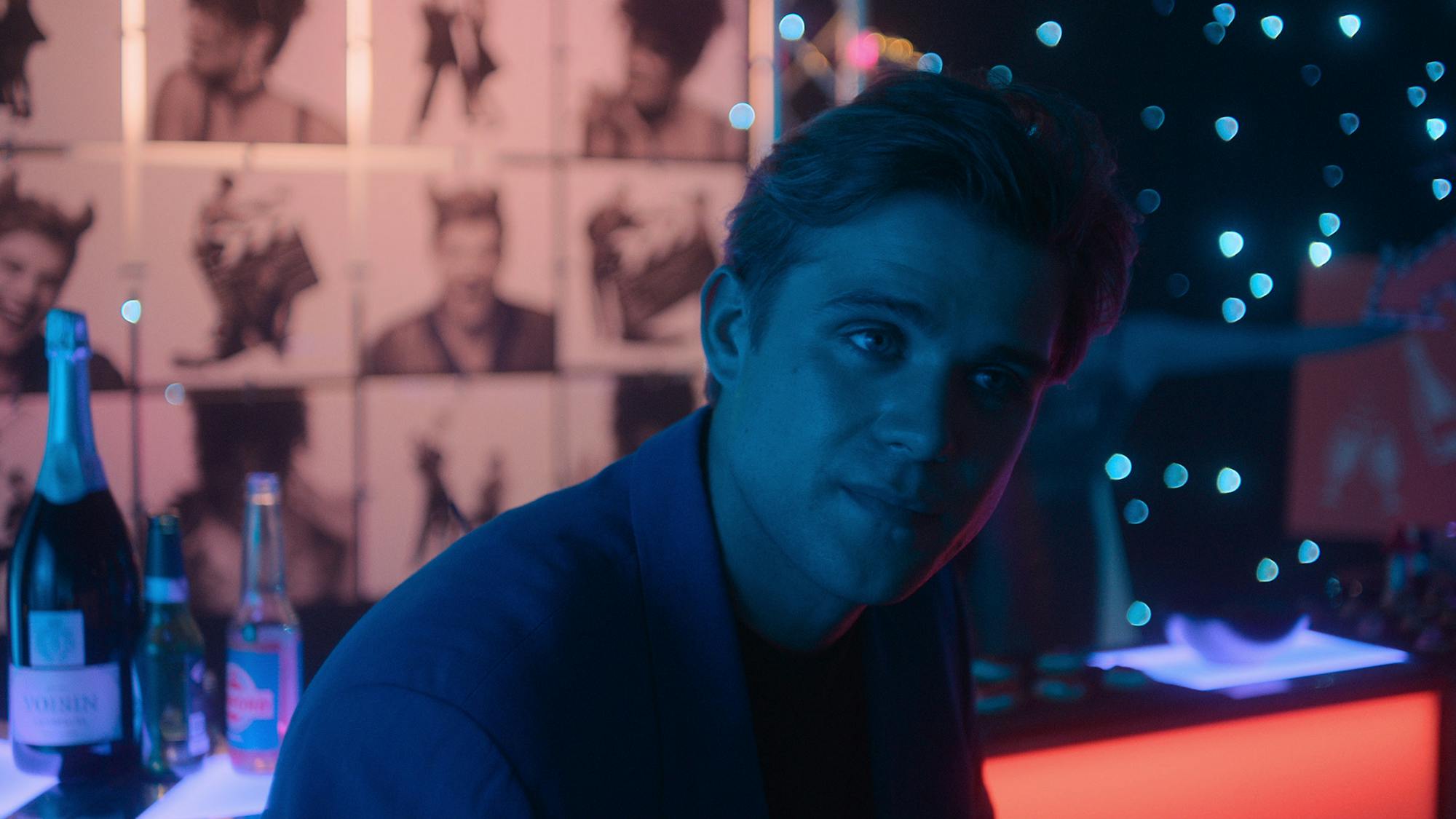
Dexter Mayhew (Leo Woodall)
“Thinking About You”
by Radiohead (Episode 6)
The lyrics of “Thinking About You” are saying, these people aren’t your friends. When Dex is sitting there, knowing that basically he’s not done that well, I really felt for him at that moment. And I think that’s why Leo is so bloody amazing; he can play that character in a way that sometimes isn’t very likable, but your heart still breaks for him, even though he is totally full of it. You still see that he’s a good person underneath all the glitter and the glitz. —Matt Biffa
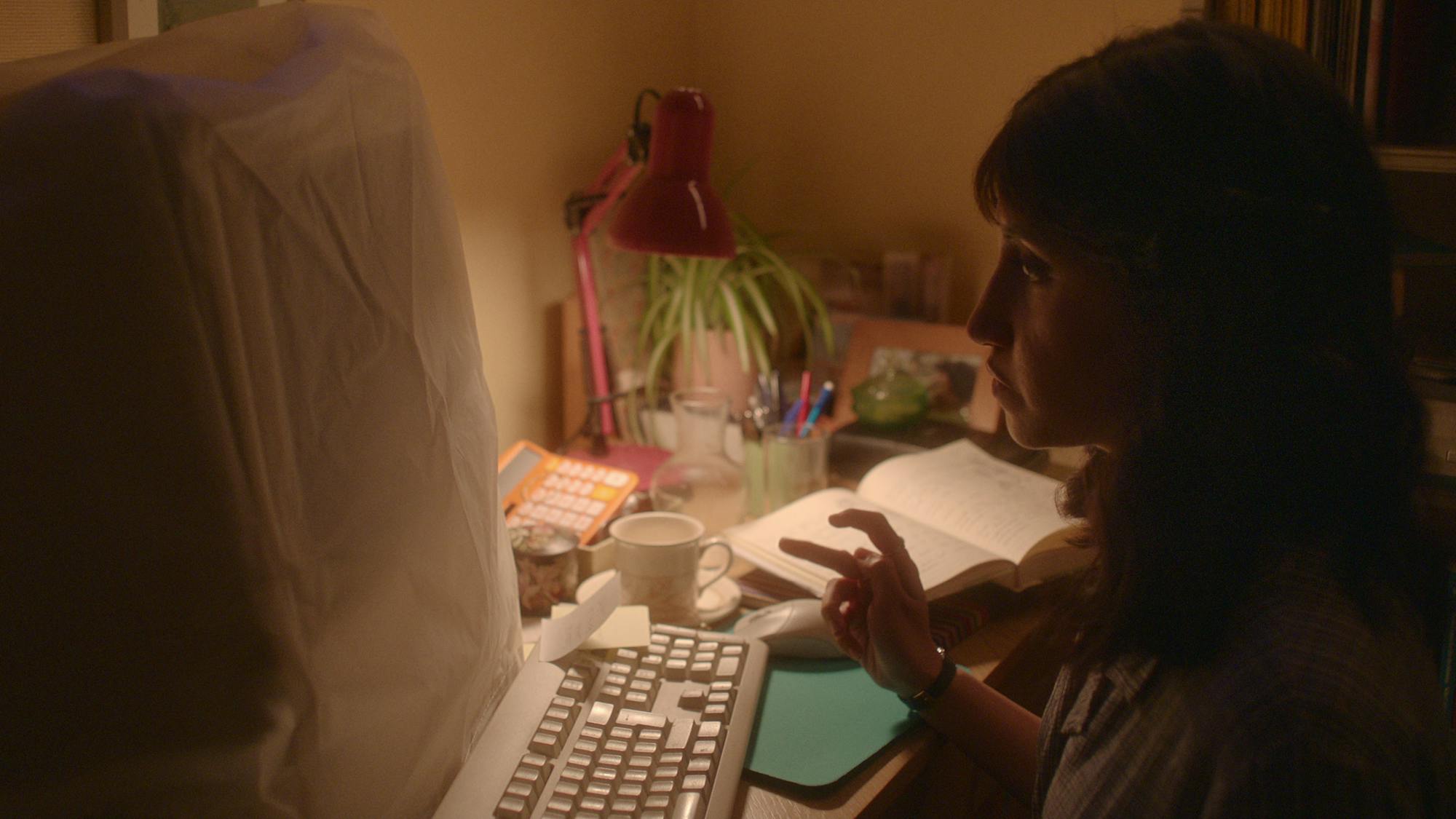
Emma Morley (Ambika Mod)
“Connection” / “Dreams”
by Elastica / by the Cranberries (Episode 8)
“Connection” does a lot of heavy lifting in that episode because, obviously, it works timewise and you don’t have to go on a very long mental journey to put what is happening on the screen together with the lyrics of the song. Also, just the energy of it. It was a bit of a no-brainer, really. And I mean that in the best possible way. Sometimes you don’t have to think too hard about it. It was John [Hardwick], the director, that came up with that one. And then “Dreams” [by the Cranberries] at the end again, was predominantly John. That, to me, is the moment where she sort of finds out what she’s supposed to be. A lot of us spent our twenties not really knowing — I mean, it took me until I was 26, when I started working at Air Edel, where I still work, to start doing a career that I actually had no idea even existed. I just wanted to work in the music business. We wander through our twenties sort of lost, thinking that we should be further ahead, thinking we should be married, thinking we should have kids, thinking we should be earning a hundred grand a year. And all that comes to [Emma] later on, doesn’t it? But I think that is the moment for her where it’s like, okay, the change is going to come. —Matt Biffa
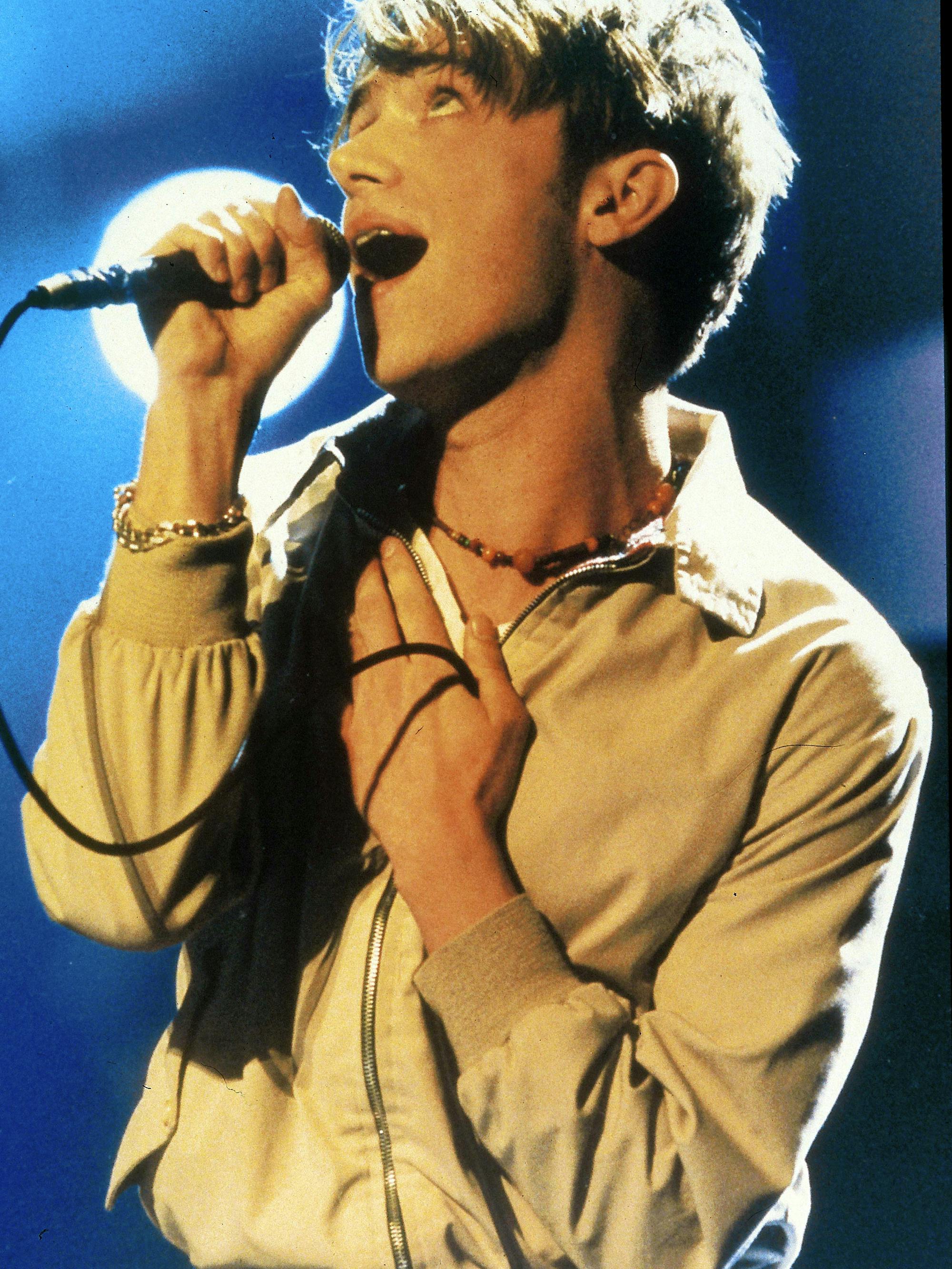
Damon Albarn
Photo by JMEnternational/Redferns
“To the End”
by Blur (Episode 9)
“To the End” — I kind of took that as Dex feeling like it’s a sincere moment and that it’s the real thing. Of course it isn’t quite, because he’s been drawn in by all the surface things, the faintly aristocratic nature of that family. So in many ways it’s a kind of idealized sort of moment with a sort of idealized soundtrack that can play as sincere if you want it to be so, but if you want to really look into it; it’s surface Dex being deep. —Matt Biffa
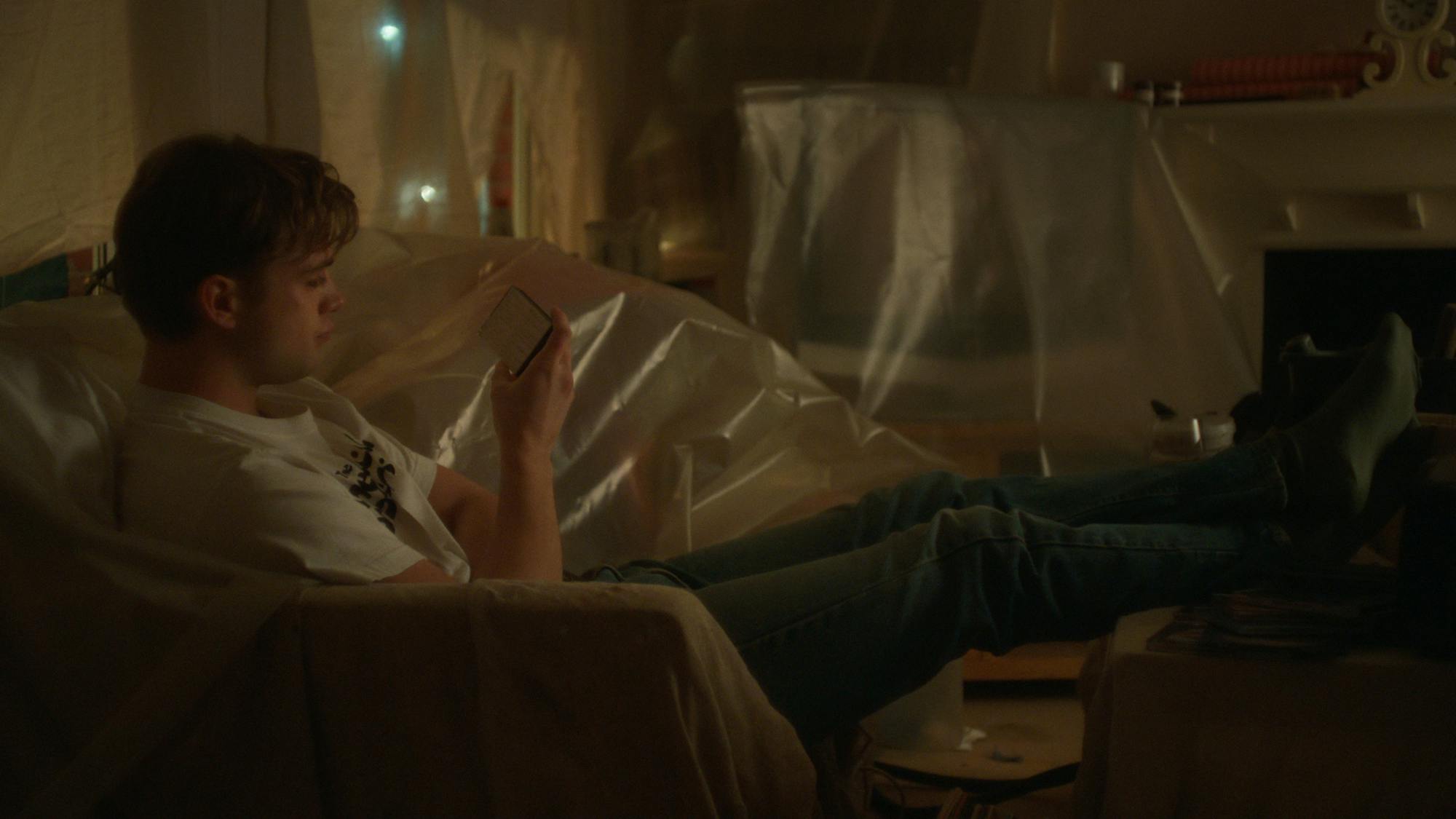
Dexter Mayhew (Leo Woodall)
“Waterloo Sunset”
by the Kinks (Episode 11)
The thing that people always remember about the novel is the refrain of Em and Dex and Dex and Em, and “Waterloo Sunset” has Terry and Julie, which I think is based on Terence Stamp and Julie Christie. This idea of a couple who are drawn together despite all the obstacles. It is a song about the pull of an inevitable relationship. And it’s a nostalgic song as well, so it fits that moment. It’s a song that underlines the fact that they’re not together, but they should be, which is the narrative pull of the whole show. It’s just one of those songs you think, What must it feel like to write a song like “Waterloo Sunset”? You could just stop, walk away — you’ve done all you need to do with your life if you’ve written “Waterloo Sunset.” It’s an example of how people in 1996 didn’t listen to music from 1996; they listened to things that moved them and affected them in the same way we do [today]. It’s an example of characters using music in the same way that we use music, and it’s perfect in that respect. —David Nicholls
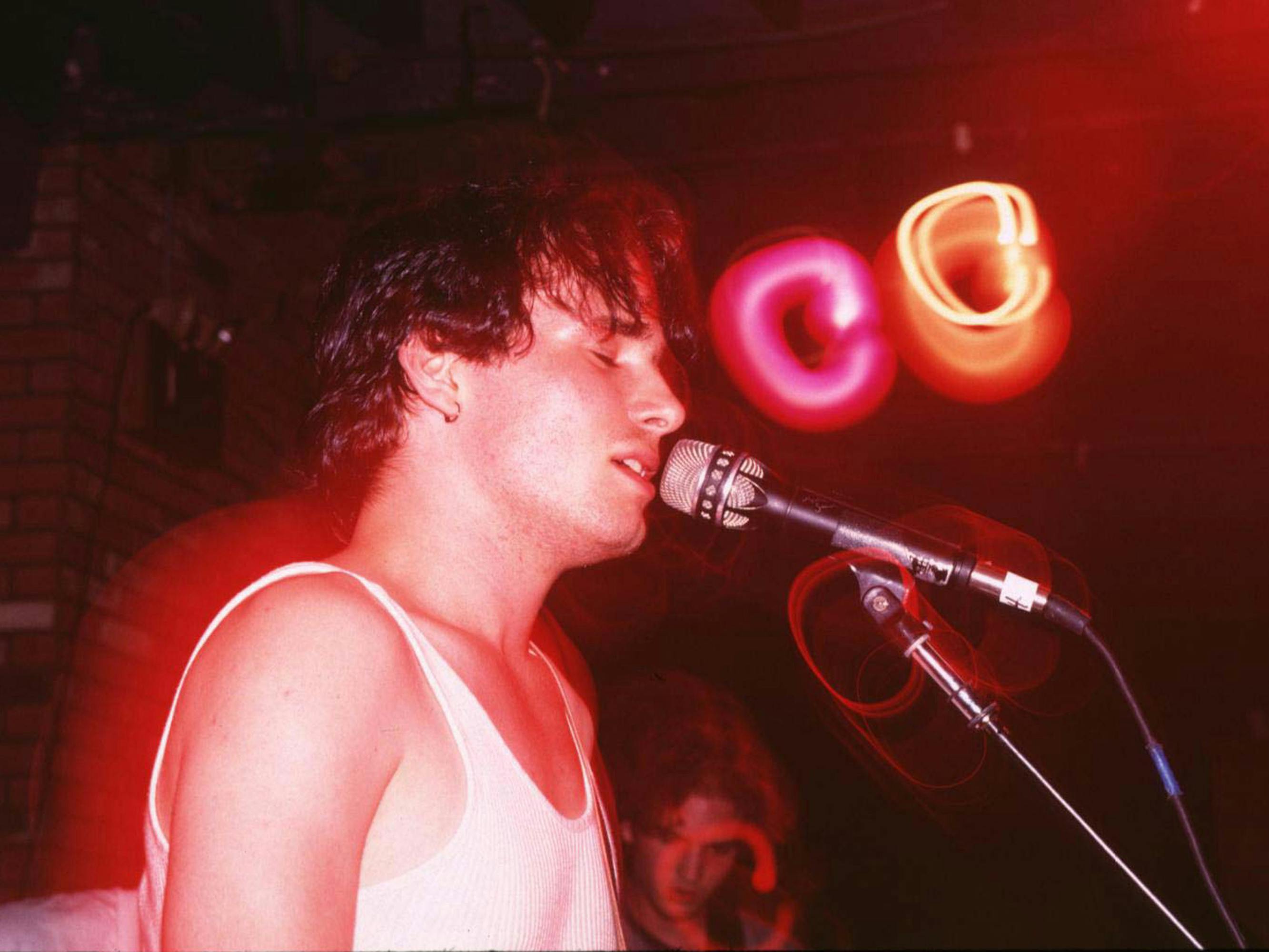
Jeff Buckley
Photo by Steve Eichner/WireImage
“Lilac Wine”
by Jeff Buckley (Episode 14)
For the scene of Dexter going upstairs to the bedroom, we tried 20 songs there. We were a bit wary of “Lilac Wine” because he’s pouring wine and you don’t want it to be too on the nose. Singing about lilac wine and drinking a big glass of wine? It’s not usually how you do it. The song is about someone drowning their sorrows and we worried that it was too much. In the end, we showed it to people who hadn’t seen the episode 100 times. “Lilac Wine” was the clear winner in terms of the emotional response. It fits the sequence beautifully, almost accidentally. It wasn’t decided before we filmed or cut. So, it’s one of those great coincidences. I love that scene. I think it’s the most beautiful scene and it’s not in the novel. The most you can hope for when someone adapts your work is you’ll see stuff that you wish was there, that you wish you’d thought of. It’s exquisite. They’re both acting so brilliantly and beautifully and subtly. It’s not a mawkish scene, because the song leads you into it. For me, it’s the high point of the 14 episodes. —David Nicholls
